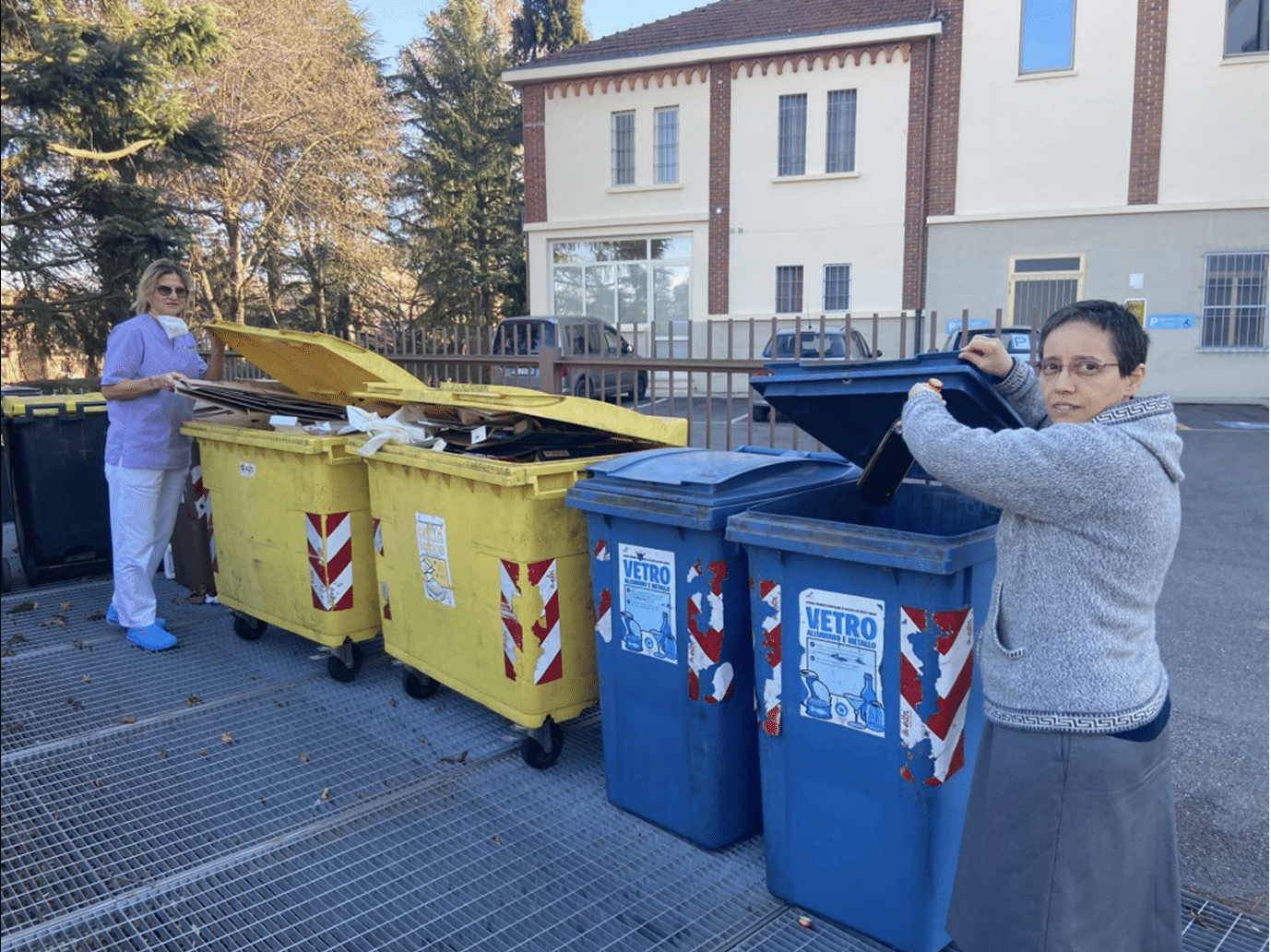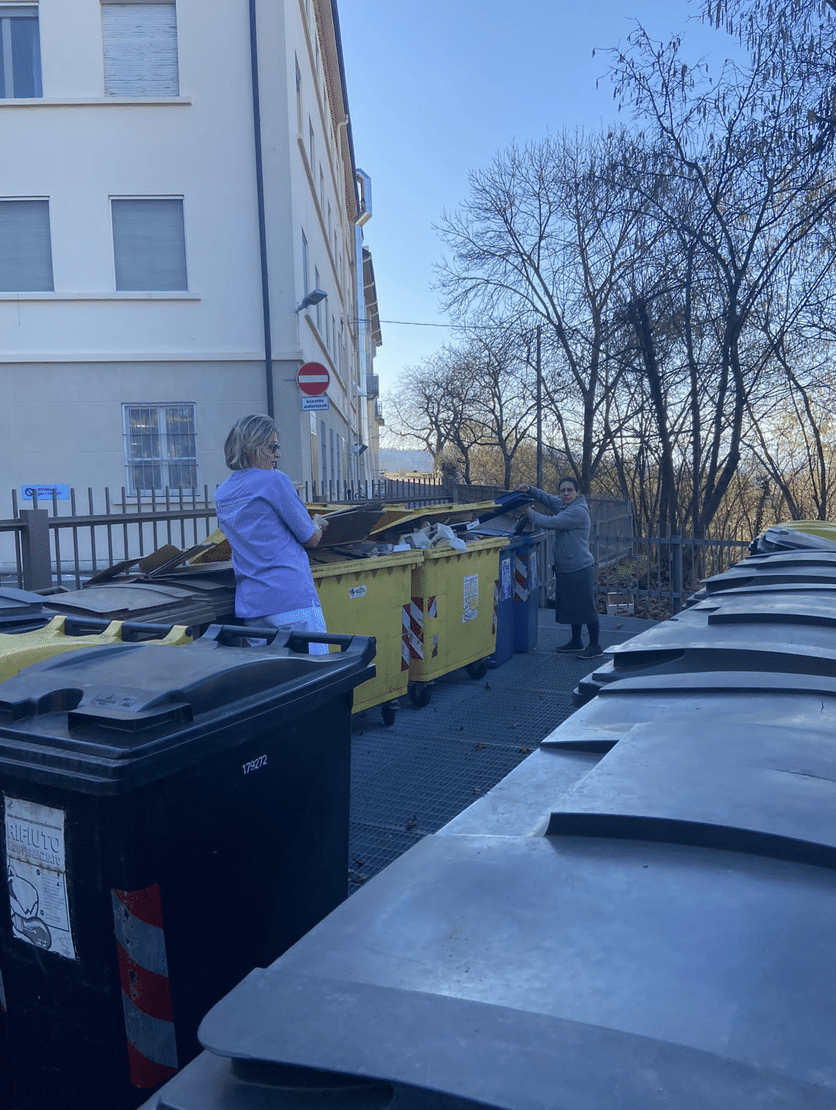
[…] The objective is to become painfully aware, to dare to transform what is happening in the world into personal suffering, and thus to recognize the contribution that each one can make. (LS 19)
[…] The earth, our common home, seems to be turning more and more into a huge dumping ground. (LS 21)
The culture of waste […] affects both excluded people and things, which are quickly transformed into garbage. […] (LS 22)
 Like those of every family, every individual or every commercial enterprise, our religious homes produce multiple kinds of waste. We go very quickly from the new object (because we have a need), to the waste (because it is no longer usable, because it has become obsolete, or because it cannot be used for another purpose). It is the consumer society that dictates the laws of life: the faster society progresses in technological and modern improvements, the more we run the risk of losing control of what we can do to save the life of the planet.
Like those of every family, every individual or every commercial enterprise, our religious homes produce multiple kinds of waste. We go very quickly from the new object (because we have a need), to the waste (because it is no longer usable, because it has become obsolete, or because it cannot be used for another purpose). It is the consumer society that dictates the laws of life: the faster society progresses in technological and modern improvements, the more we run the risk of losing control of what we can do to save the life of the planet.
We all produce waste, so it is fundamental to educate each person, including the smallest, to know how to manage the differentiation and regulate a sustainable disposal.
Our homes, our lifestyles, these are the places where we become aware of the waste we produce. When we take care to improve the recovery of waste and garbage, we make the environment more beautiful, we beautify this small part of the world that has been entrusted to us.
 At the same time, we hear the cry of the earth and the cry of the poor: “The human environment and the natural environment are degrading together, and we will not be able to deal adequately with the degradation of the environment if we do not pay attention to the causes that are related to human and social degradation” (LS 48).
At the same time, we hear the cry of the earth and the cry of the poor: “The human environment and the natural environment are degrading together, and we will not be able to deal adequately with the degradation of the environment if we do not pay attention to the causes that are related to human and social degradation” (LS 48).
The use of the material things we throw away makes us notice those who are struggling to live daily with the little they manage to scrape together to avoid starvation. Today, families are really struggling. As a community, we take care to make small gestures towards these people, without distinction, by sharing basic necessities.
Sister Angela D’Ettore